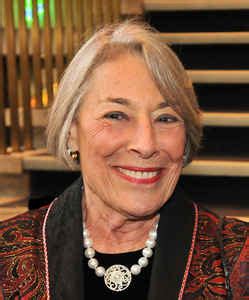A Quote by Agatha Christie
I've always believed in writing without a collaborator, because where two people are writing the same book, each believes he gets all the worry and only half the royalties.
Related Quotes
A high-ranking Syrian official in DC laughed when he heard I was reading Michel Aflaq and writing this book. He said, "Let me tell you something. There are no Baathists, no one believes this stuff, this is stuff you read in school because it's assigned to you. Maybe someone believed it, but no one really believes it." And I thought that was really interesting to hear, because the ideology of Baathism was presented so often to Americans as the core of what's wrong.
My books are based on the "what if" principle. "What if you became invisible?" or "What if you did change into your mother for one day?" I then take it from there. Each book takes several months in the long process of writing, rewriting, writing, rewriting, and each has its own set of problems. The one thing I dislike about the writing process is the sometimes-loneliness of it all. Readers only get to see the glamour part of a bound book, not some of the agonizing moments one has while constructing it.
You learn so much with each book, but it's what you teach yourself by writing your own books and by reading good books written by other people - that's the key. You don't want to worry too much about other people's responses to your work, not during the writing and not after. You just need to read and write, and keep going.
The process of writing a book is infinitely more important than the book that is completed as a result of the writing, let alone the success or failure that book may have after it is written . . . the book is merely a symbol of the writing. In writing the book, I am living. I am growing. I am tapping myself. I am changing. The process is the product.
There is nothing you can do except try to write it the way that it was. So you must write each day better than you possibly can and use the sorrow that you have now to make you know how the early sorrow came. And you must always remember the things you believed because if you know them they will be there in the writing and you won’t betray them. The writing is the only progress you make.
The whole thing of working in all these different mediums, it's just so that I can always be playing hooky from one of them. I can always be rebelling against my boss. Like, I'm supposed to be writing this book, but - heh heh heh - I'm writing a movie, secretly. I'm procrastinating, and in my off-hours I'm working on this movie that I'm not allowed to do, because I'm supposed to be writing a book!
Writing fiction lets you be a little more emotional and unguarded, a little freer. Writing fictional characters is also really different from writing about real people. In nonfiction, you can only say so much about the people you interact with. After all, they're actual people, their version of their story trumps yours. In a novel, you can build a character, using certain parts or impressions of someone you know, and guessing or inventing others, without having to worry that your guesses or memories or inventions are wrong.
I began writing books after speaking for several years and I realize that when you have a written book people think that you're smarter than you really are if I can joke. But it's interesting. People will buy your book and hire you without reading the book just because you have a book and you have a book on a subject that they think is of interest to themselves or e to their company.






































